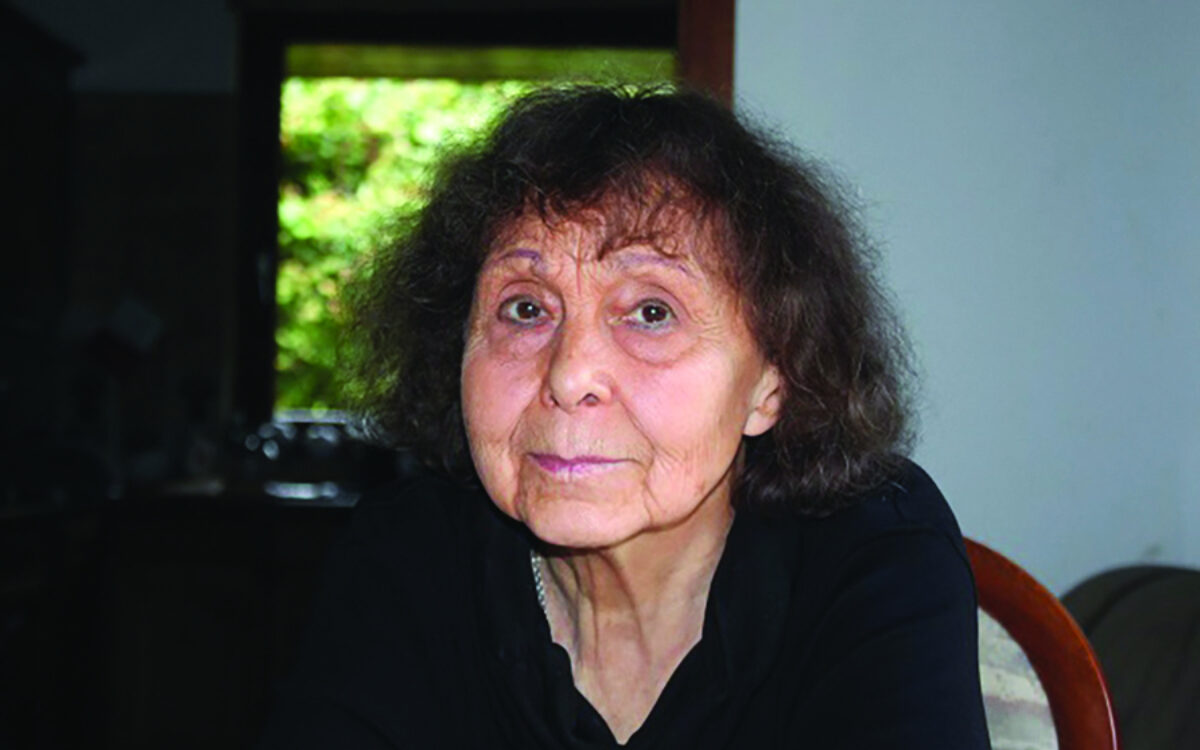In Memory of Sofia Gubaidulina

Composer Sofia Gubaidulina died March 13, 2025, at age 93 in Appen, Germany. One of the great artists of our era, Gubaidulina had important associations with both to the Boston Symphony Orchestra and to music director Andris Nelsons. Most recently, Nelsons led performances of her symphonic poem The Wrath of God with the BSO in spring 2024 at Symphony Hall. With the Gewandhausorchester Leipzig (GHO), Nelsons recorded that work along with the composer’s third violin concerto Ich und Du, with soloist Vadim Repin, and The Light of the End, a BSO-commission. She was working on Prologue for Orchestra – a co-commission from the BSO and GHO – at the time of her passing. Upon learning of her death, Andris Nelsons responded,
“Sofia Gubaidulina was a towering figure and an inspiration to us all. Her music, with its profound spirituality and intellectual sensibility, speaks directly to our soul and awakens our imagination in the way only truly great music can. I feel very privileged to have known her and to have premiered many of her works with both the Boston Symphony Orchestra and the Gewandhausorchester Leipzig. We will miss her greatly.”
The BSO made the premiere recording of Offertorium with Gidon Kremer and conductor Charles Dutoit in 1988. The orchestra played her Viola Concerto with soloist Yuri Bashmet in April 1997 under Bernard Haitink, and later that year Gubaidulina was a featured composer at Tanglewood. The composer was present for Kurt Masur’s premiere performances with the BSO of The Light of the End in 2003, and again when Andris Nelsons led the world premiere of her Triple Concerto for violin, cello, and bayan in 2017 with soloists Baiba Skride, Harriet Krijgh, and Elsbeth Moser. Her work has also been performed frequently by the Boston Symphony Chamber Players and by Tanglewood Music Center Fellows.
Offertorium was the first work of Gubaidulina’s to bring attention to her music in the West. Born in Tatarstan in the former Soviet Union, Gubaidulina was encouraged in her pursuit of her own artistic goals by Dmitri Shostakovich when she was still in school despite official mistrust of experimentation and artistic individuality. In the 1960s and ’70s, she collaborated with like-minded musical explorers in seeking out both new sound-worlds and in making practical use of indigenous Asian traditional instruments such as the accordion-like bayan. Deeply spiritual and powerfully influenced by the music of J.S. Bach, she incorporated theological ideas into the very architecture of her music. Offertorium, which references Bach’s Musical Offering, is one such work, its structure reflecting the form of a cross as well as the design principle of the golden mean.
With Offertorium having paved the way, during the political and cultural thaw between the Soviet Union and the U.S. in the late 1980s Gubaidulina began to travel outside of the Soviet Union to hear premieres of her music. The occasion of the BSO’s performances and recording of Offertorium took place in spring 1988 for the American/Soviet Cultural Exchange “Making Music Together,” which took place in Boston. From that point, Gubaidulina’s work entered the repertoires of every major U.S. ensemble: her Viola Concerto was premiered by the Chicago Symphony Orchestra and violist Yuri Bashmet, and her Two Paths: Music for Two Violas and Symphony Orchestra was a New York Philharmonic commission premiered by Kurt Masur in 1999. She has written violin concertos for both Anne-Sophie Mutter and Vadim Repin. Gubaidulina was also one of four composers commissioned by Helmuth Rilling and the Bachakademie to write a Passion oratorio to commemorate the millennium as well as the 250th anniversary of J.S. Bach’s death. Her Johannes-Passion was premiered in September 2000. The Wrath of God (2019), which was composed for the Salzburg Easter Festival, was premiered in 2020.
Robert Kirzinger
Andris Nelsons congratulates composer Sofia Gubaidulina from the stage following the world premiere performance of Triple concerto for violin, cello and bayan, at Symphony Hall, February 23, 2017. Photograph by Winslow Townson.
Composer Sofia Gubaidulina and conductor Kurt Masur stand for the curtain call after the world premiere performance of Gubaidulina's The Light of the End on April 17, 2003.
Composer Sofia Gubaidulina and conductor Bernard Haitink following a BSO performance of Gubaidulina's Viola Concerto (Yuri Bashmet, soloist) in Symphony Hall, April 1997. Photograph by Miro Vintoniv.
Viola soloist Yuri Bashmet and composer Sofia Gubaidulina's following the BSO's performance of her Viola concert (conducted by Bernard Haitink) at Symphony Hall, April 1997. Photograph by Miro Vintoniv.
Sofia Gubaidulina takes a bow following a Tanglewood Music Center performance of Now Always Snow conducted by Reinbert de Leeuw during the Festival of Contemporary Music at Tanglewood, August 10, 1997. Photograph by Walter H. Scott.
Boston Globe review of the BSO's performance of Sofia Gubaidulina's Offertorium at Symphony Hall in late March/early April 1988. Review by Richard Dyer.
Photograph appearing in Berkshire Eagle article (April 10, 1988) reviewing BSO performance of composer Sofia Gubaidulina's Offertorium at Symphony Hall in late March/early April 1988. Photograph by Roger Farrington.







